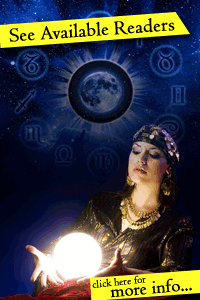Credit Card Callers
OPERATOR ASSIST
Available 10am to 6pm daily for bookings/Issues
Billed as Access Positive
*You must accept our Terms of Use

Home > Psychic Blog > Astrology And Its Application In The Western World
Astrology And Its Application In The Western World
For centuries, man has been amazed and perplexed with the thought of predicting the future, and forecasting their personal or family fortunes. History is rife with accounts of prophecies and predictions, as foretold by famous soothsayers, fortune tellers, clairvoyants and astrologers. Here are a few notable facts, and figures, on how the Western world views astrology.
Man, Earth and The Environment As One
Western astrology is based on the principle of the complete integration of the solar system. Here, man, the earth and its environment are viewed as a single organism, and are all correlated to each other. The individual is considered only as a microcosm, or a small part, of the bigger celestial environment. Thus, a person's horoscope will usually depict a map of the universe during the individual's time of birth, with the person at the centre, and the sun, moon and other celestial bodies serving as the individual's personal stars and planets.
The Numerical Proportion of Western Astrology
Western astrology often stresses the art of numerical proportion. According to ancient Greek philosopher Pythagoras, his theory called "The Harmony of Spheres", proposes that the sun, moon and the other planets dispel or release their own unique hum, that's usually based on their orbits. The quality of life on earth, according to Pythagoras' theory, reflects on the tone of the celestial sounds, although this may not be heard by the human ear. This Greek philosopher's principle has profoundly influenced the practice of astrology even up to this day.
How The Ideas Of Ancient & Modern Philosophers Are Related To Astrology
Most of the modern philosophers of our time have nearly all their works and treatises closely linked to astronomy. Ya'qub ibn Ishaq Al-Kindi, the renowned Arab philosopher, got his views of the solar system from Ptolemy, who placed the Earth at the centre of a concentric sphere, wherein the moon, Mercury, Venus, the Sun, Jupiter, Mars and the other stars are laid out. Ya'qub believed that these celestial bodies were "rational" entities, and their circular motions paid obedience and worship to a supreme being such as God. Thus, the celestial bodies acted as the Divine Providence's instruments. Ya'qub also strongly believed that the Earth's different seasons are often marked by specific arrangements by the stars and planets, thus the manner and appearance of an individual varies according to the arrangement of the stars and planets above their hometowns.
The German mathematician and astrologer, Johanes Kepler, also compiled his "Harmony of The World" treatise, which analyzed planetary harmony, geometrical shapes and musical consonances. With regards to planetary harmony, Kepler argues that mathematical harmony is a factor that binds all parts together, both on earth and outside it. Francis Bacon, the famous English philosopher, also created an astrological theory during the 17th century, which states that "there is no fatal necessity in the stars, but that they rather incline than compel". Bacon was also an ardent promoter of "sane" astrology, which is based on the study of subtle influences hidden in the depths of the human psyche. Western astrology, even till today, is generally considered a horoscopic one, where the individual's birth is founded or based on the positions and movements of the celestial bodies.
Disclaimer
This psychic site and its owners are not liable for any direct, indirect, incidental, consequential, or punitive damages arising from using this site, the psychic contractors listed on it, or its content. By giving us your email address you agree to allow us to send you occassional maketing materials. We will never pass your details to another company.
Terms of Use
You must accept and agree to our Terms of Use before using our services.



















